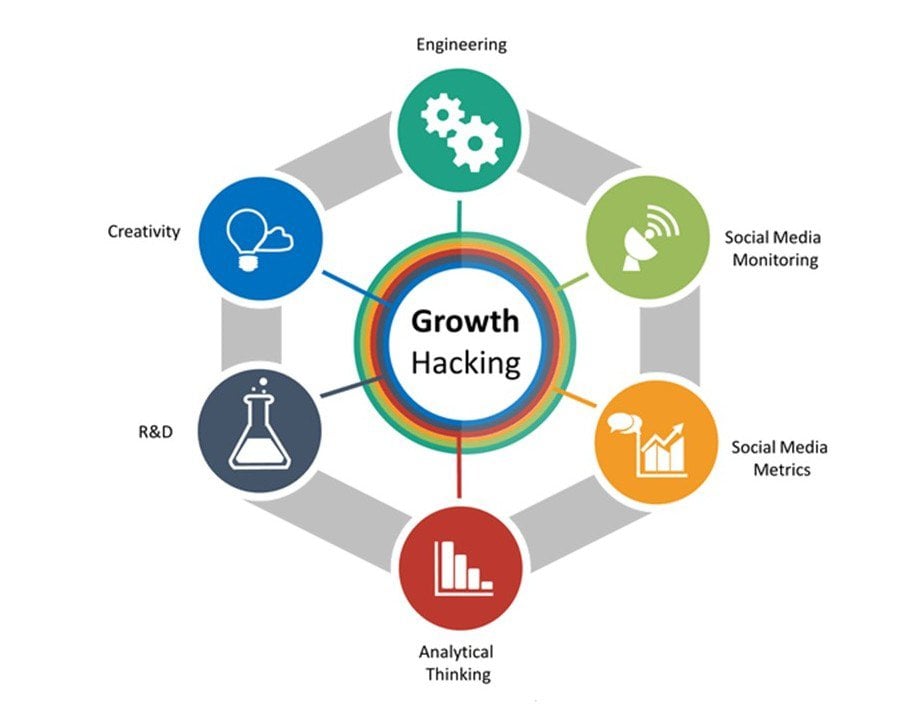
E-commerce businesses are rapidly growing, and companies are on the lookout for ways to increase their customer base and profit margins to stay in the race. Growth hacking has emerged as a powerful strategy to help e-commerce businesses achieve their goals more effectively. In this comprehensive guide, we will explore the essential growth hacking strategies for e-commerce that your business needs to implement to experience rapid growth and stay ahead of the competition.
Understanding Growth Hacking
What is Growth Hacking?
Growth hacking refers to the process of implementing innovative and cost-effective marketing techniques that focus on fast and scalable business growth. The goal of growth hacking is not only to acquire new customers but also to retain the existing ones by creating a unique customer experience. Growth hacking prioritizes a data-driven, experimental and agile approach to business growth.
In today’s competitive business environment, companies are constantly looking for new and effective ways to grow their business. Growth hacking has emerged as a popular and effective strategy that can help businesses achieve their objectives in a cost-effective manner. By leveraging technology, data, and creativity, growth hacking can help businesses achieve rapid growth and outperform their competitors.
The Importance of Growth Hacking in E-Commerce
Growth hacking is a powerful strategy that can help e-commerce businesses differentiate themselves from their competitors and achieve rapid growth. E-commerce businesses are under constant pressure to drive sales and revenue, and growth hacking provides a systematic approach that can help small and medium-sized businesses achieve their objectives.
Implementing growth hacking in e-commerce can help businesses reduce their customer acquisition costs, increase their customer lifetime value, and maximize their profits. By focusing on customer needs and preferences, e-commerce businesses can create a unique and personalized customer experience that can help them stand out in a crowded market.
Key Principles of Growth Hacking
The key principles of growth hacking involve a systematic and scientific approach to business growth. The principles include:
- Data-driven decision making: Growth hacking relies on data to make informed decisions about marketing strategies and tactics. By analyzing customer behavior and preferences, businesses can identify opportunities for growth and optimize their marketing efforts.
- Experimentation and testing: Growth hacking involves testing different marketing strategies and tactics to identify what works and what doesn’t. By experimenting with different approaches, businesses can identify the most effective strategies for driving growth.
- Agile and adaptable methodology: Growth hacking requires a flexible and adaptable approach to business growth. By staying nimble and responsive to changing market conditions, businesses can quickly adjust their strategies and tactics to stay ahead of the competition.
- Focusing on the customer: Growth hacking is all about creating a unique and personalized customer experience. By understanding customer needs and preferences, businesses can create products and services that meet their needs and build strong customer relationships.
By following these key principles, businesses can implement a growth hacking strategy that can help them achieve rapid and sustainable growth. Growth hacking is not a one-size-fits-all approach, but rather a customized and tailored strategy that can help businesses achieve their unique objectives.
Building a Solid Foundation
Building a solid foundation is crucial for any business looking to succeed in today’s market. A solid foundation means having a clear understanding of your target audience, a unique value proposition, and a strong brand identity. In this article, we will dive deeper into each of these components and explore how they can help you grow your business.
Identifying Your Target Audience

Identifying your target audience is the first step towards building a solid foundation for growth hacking. It is not enough to have a general idea of who your customers are. To truly understand your audience, you need to collect data on their demographics, interests, and purchasing habits. This information can help you design customer-specific products and services that meet their needs.
There are many tools available to help you collect data on your customers. Google Analytics is one such tool that can provide valuable insights into user behavior on your website. By tracking user behavior, you can identify the channels where your users are coming from and gain insights into their purchasing behavior.
Once you have a clear understanding of your target audience, you can tailor your marketing efforts to better reach and engage them. This can help you build a loyal customer base and increase your overall revenue.
Creating a Unique Value Proposition
Your unique value proposition is what sets you apart from your competitors and explains to your customers why they should choose your products or services. A strong value proposition can help you stand out in a crowded market and attract more customers.
Developing a clear and compelling value proposition requires a deep understanding of your customers’ needs and pain points. You should focus on the benefits that your products or services provide and how they solve your customers’ problems. Your unique value proposition can be a combination of quality, price, service, convenience, or other benefits that meet your customers’ needs.
It is important to communicate your unique value proposition clearly and consistently across all marketing channels. This can help build trust and credibility with your customers and increase their likelihood of making a purchase.
Establishing Your Brand Identity
Establishing a strong brand identity is crucial for building trust and credibility with your customers. Your brand identity should reflect your unique value proposition and be consistent across all marketing channels.
Developing a brand style guide can help ensure consistency in your brand’s tone and personality, typography, and color scheme. This guide should outline the key elements of your brand identity and provide guidelines for how they should be used in all marketing materials.
A strong brand identity can help your customers recognize and relate to your products or services. This recognition can lead to increased brand loyalty and a higher likelihood of repeat business.
In conclusion, building a solid foundation for growth hacking requires a deep understanding of your target audience, a clear and compelling unique value proposition, and a strong brand identity. By focusing on these key components, you can build a loyal customer base and increase your overall revenue.
Acquisition Strategies
Search Engine Optimization (SEO)
Search engine optimization (SEO) is the process of optimizing your website to rank higher on search engine results pages (SERPs). SEO involves keyword research, optimizing on-page elements such as meta tags and content, and building quality backlinks to your site. By improving your website’s ranking on search engines such as Google, you can drive more organic traffic to your site and generate more leads and sales.
Content Marketing

Content marketing involves creating valuable and relevant content to attract and engage your target audience. Content can take the form of blog posts, infographics, videos, e-books, and other forms of media. By creating high-quality content, you can position yourself as a thought leader in your industry and attract organic traffic to your website. You can also repurpose your content to other channels such as social media and email marketing.
Social Media Marketing
Social media marketing involves using social media platforms such as Instagram, Facebook, Twitter, and LinkedIn to connect with your target audience. Social media marketing can help you build brand awareness, generate leads, and drive sales. When used correctly, social media can help you reach a wider audience and engage with your customers more effectively.
Influencer Marketing
Influencer marketing involves partnering with individuals who have a large following on social media to promote your products or services. Influencer marketing can help you reach a wider audience and build credibility with your customers. By identifying and targeting influencers in your niche, you can leverage their influence and reach to promote your brand and drive sales.
Email Marketing
Email marketing involves sending targeted emails to your subscribers to promote your products or services and build brand awareness. Email marketing allows you to communicate directly with your audience and provide them with personalized content. By segmenting your email list and sending targeted emails, you can increase the open rate and click-through rate of your emails and generate more leads and sales.
Paid Advertising
Paid advertising involves paying for ads to be displayed on search engines, social media, or other online platforms. Paid advertising can help you reach a wider audience and generate leads and sales quickly. By targeting your ads to specific demographics and interests, you can maximize the effectiveness of your paid advertising campaigns.
Conclusion
Implementing these top 40 growth hacking strategies for e-commerce can help your business achieve rapid growth in a cost-effective and scalable way. By focusing on data-driven decision making, experimentation, and agile methodology, you can optimize your marketing efforts and drive more sales and revenue for your business. Identifying your target audience, creating a unique value proposition, and establishing your brand identity are essential to building a solid foundation for growth hacking. With the right acquisition strategies such as SEO, content marketing, social media marketing, influencer marketing, email marketing, and paid advertising, you can attract and retain more customers for your e-commerce business.
